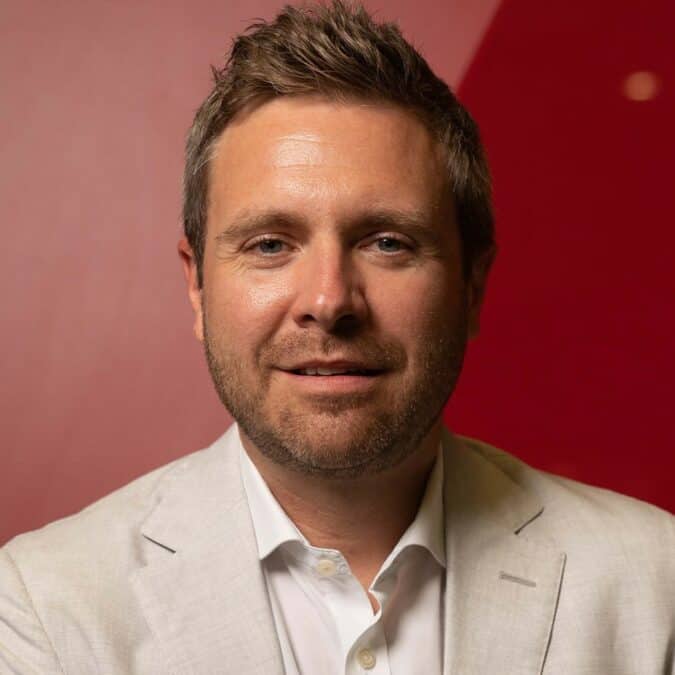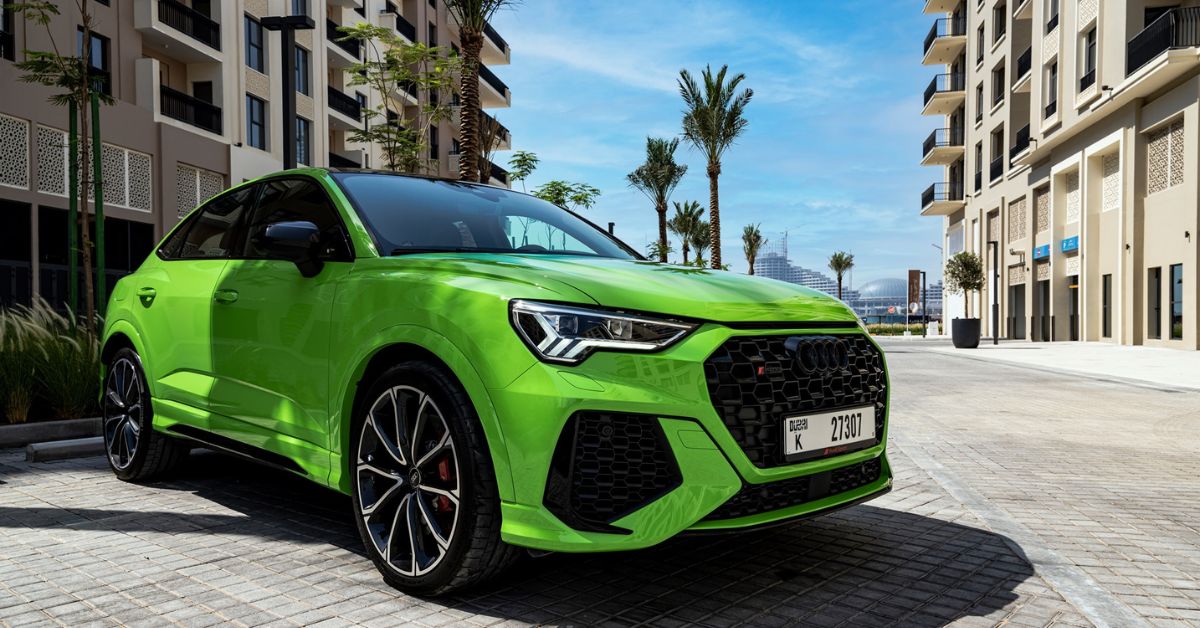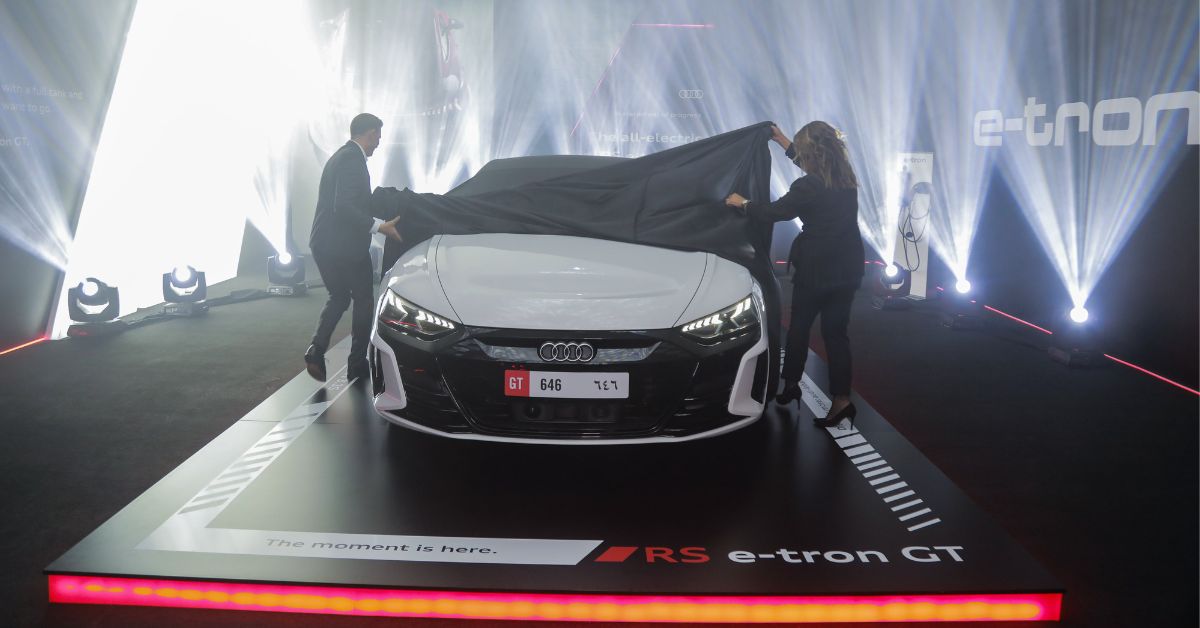DUBAI, UAE — Despite global economic challenges, which include supply chain issues and shipping delays, the GCC luxury car market is expected to continue its growth this year, Peter White, Sales Director at Audi Middle East told TRENDS in an interview.
While highlighting the company’s innovative strategies to provide attractive purchasing options to customers, White noted that a shift in consumer preferences — with a substantial percentage of sales coming from smaller and midsize vehicles — hasn’t dented the appeal of luxury cars.
He also pointed out that despite changing times, the GCC region continues to show a high demand for customized cars. “This suggests that despite economic constraints, the desire for personalization in luxury vehicles remains a priority for consumers,” White said while discussing how Audi is expanding its footprint in the Middle East by introducing new models and investing in cutting-edge technologies as part of its relentless drive towards sustainability.
Excerpts
How are you focusing on sustainability, and what are your plans and visions for the GCC and Middle East markets? Do you see a demand for environmentally friendly vehicles?
As a brand, we are committed to implementing our electrification strategy in the region, which will soon cover all markets across the GCC and the Near East. Our plans include the roll out of the Q8 e-tron and Q8 e-tron Sportback following its regional previews last month, to join the e-tron GT and the rest of our battery electric vehicles (BEV) portfolio. This demonstrates the brand’s dedication to providing sustainable and environmentally friendly transportation options as we see growing demand for BEV options in the region as their benefits become more apparent to our customers.

With the global recession and inflation, do you see an increase in demand for clients to buy luxury cars these days, or are they shifting to middle-class vehicles? Can you provide us with some insights or percentages in this regard?
In 2022, we observed that approximately 55 percent of our regional volume consisted of both compact or small family vehicles (classified generally as C Segment vehicles) and midsize or large family vehicles (classified as D segment vehicles) . Within this 55 percent, around 40 percent was derived from our C Segment SUV offering. We continue to experience strong performance across the entire product range, and our dealership partners are exploring various means to introduce attractive purchasing options for customers, such as competitive financing and leasing.
What do clients look for nowadays when purchasing a luxury car in the GCC?
We know that our customers look for a combination of comfort, performance, and design, but in recent years we have also seen demand for sustainable solutions in that mix. While comfort has always been a key factor, modern luxury cars offer high levels of specification, technology, and exterior appearance to further enhance that comfort.
In addition to that, clients also seek advanced performance features, such as powerful engines and precise handling, to provide a thrilling driving experience – whether than is from a traditional internal combustion engine, a hybrid or fully electric vehicle. Design is also an important consideration that uses high-quality materials, and the latest technology features.
Is the region’s (GCC) demand for customized cars still high, or has it been impacted by the global economic crisis?
Despite the global economic crisis, we continue to see strong demand for our products in the GCC region, especially for our performance vehicles (S Models and Audi Sport), however, as a result of this demand, lead times have also gone up.
Additionally, we have observed an increased requests for individualization through our Audi exclusive offering. This unique service allows customers to customize their vehicles according to their unique preferences.
Furthermore, we have seen a growing interest among customers in limited volume and unique editions. Therefore, despite challenging economic conditions, Audi remains a highly sought-after brand in the GCC region.
What are the current challenges in the luxury market, and what are your expectations for the GCC luxury car market in 2023?
There are several challenges that are currently being faced. One of the most significant is the impact of global political and economic factors on the automotive sector. This has resulted in supply chain issues, which have affected the availability of vehicles in the market. Additionally, shipping delays have further compounded these challenges.

Looking ahead, we expect to see continued growth in the luxury car market in the GCC; and are committed to mitigating the challenges through our strong partnerships and dealers, such as optimizing our supply chain and enhancing our production processes. We remain confident in our ability to meet the evolving needs of our customers and provide them with the exceptional luxury driving experience they expect from Audi.
Could you give us some insights about Audi’s record global growth in the 2022 fiscal year, as well as its performance in the Middle East (GCC) in 2022?
In the 2022 fiscal year, Audi Group achieved a record result while continuing to focus on becoming a leading provider of connected, fully electric premium mobility. Revenue increased by 16.4 percent to reach €61.8 billion, while operating profit rose nearly 40 percent to an all-time high of €7.6 billion. The company’s operating margin also increased to 12.2 percent, up from 10.4 percent the previous year. The strong financial performance was due to good crisis management and a competitive pricing strategy. Additionally, the number of fully electric models delivered increased significantly in 2022.
This year, Audi is launching the largest global product campaign in the company’s history, starting with the future Q6 e-tron model series. It will be the first electric model based on the Premium Platform Electric (PPE).
In the Middle East, we continued the strong momentum in 2022 with a year-on-year increase of 48 percent across the region for new car sales, with some markets posting their best-ever new car sales results. Our focus on broadening our customer base saw our Fleet & Corporate offering successfully onboard new strategic customers along with increasing our SME sales volumes. Pre-Owned Sales for 2022 mirrored the strong performance of 2021 despite challenges in stock availability vs the high customer demand. Overall, a very successful year for the Audi brand and our regional partners.
Overall, Audi’s success in the GCC market can be attributed to its strong brand reputation, innovative product offerings, and commitment to customer satisfaction. The company’s continued investment in electrification and sustainability is also expected to drive growth in the coming years, as more customers in the region seek out environmentally-friendly luxury vehicles.
What are the new technologies that Audi is currently working on? Any new technology that has been shared by global and you would like mentioning?
Globally, we have been working on various new technologies, recently presenting our “Audi Production of the Future” plan, which focuses on the digitization and automation of our production processes.
This plan includes the use of advanced technologies such as artificial intelligence, robotics, and virtual reality to optimize production efficiency, reduce costs, and improve quality control. We have also invested heavily in battery technology and charging infrastructure to support the growth of our electric vehicle lineup. Additionally, we are exploring new materials and sustainable production methods to minimize our environmental impact.
As of 2026, the brand with the four rings will only launch all-electric models onto the global market, gradually phasing out production of its combustion models by 2033. Based on this clear decision made as part of its Vorsprung 2030 corporate strategy, Audi is now taking steps to prepare its global facilities for the production of all-electric cars. which is part of a robust plan to have 20 all-electric Audi models on the road by 2025.
What recent sustainable achievement in the UAE/GCC is Audi Middle East most proud of?
We are proud of our dealers for renovating their facilities to include sustainable energy-saving technologies. Each dealer in the Middle East has made strides to install high power chargers in their facilities. For instance, in Oman, Audi has been working closely with local energy provider, EVO, installing over 70 chargers across the country in 2022. This network will be further expanded to over 250 charging points by the end of 2023. Furthermore, our dealers are exploring methods to work on various infrastructure projects in their respective markets.
We have also been fortunate to collaborate with the Museum of the Future in the UAE. As their official automotive partner, we have been able to showcase what the future of mobility will look like through a unique lineup of concept vehicles. Working with the museum has also given us the opportunity to install bespoke Audi charging units in its parking facilities. With 21 charging bays available to EV-driving visitors, this marks the first fully operational EV hub from Audi, in line with our goal to support the UAE’s future vision.
What are the new models that are popular in the GCC region, and are they the same as the global models, or is there a difference in demand? Can you please share with us the latest breakdown for models in different markets?
The Q8 e-tron that had its regional premiere in March has already received very positive feedback from media and customers alike. While our SUVs make up our top-selling vehicles across the region, we have seen a 25 percent increase in our sedan volume from 2021 to 2022.








